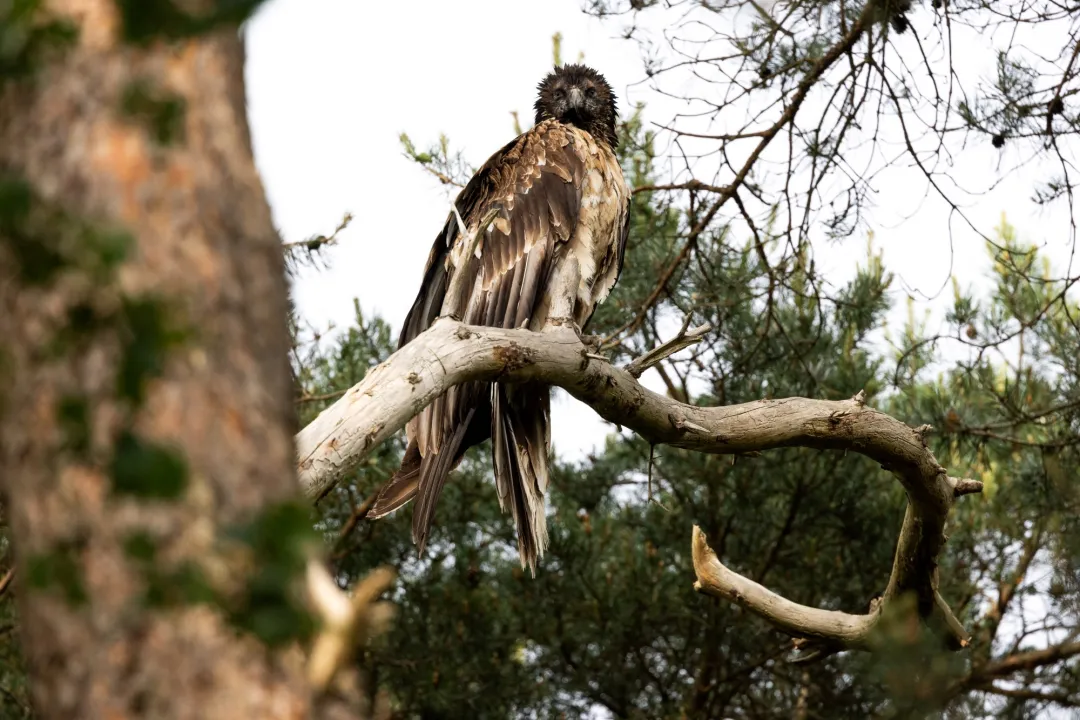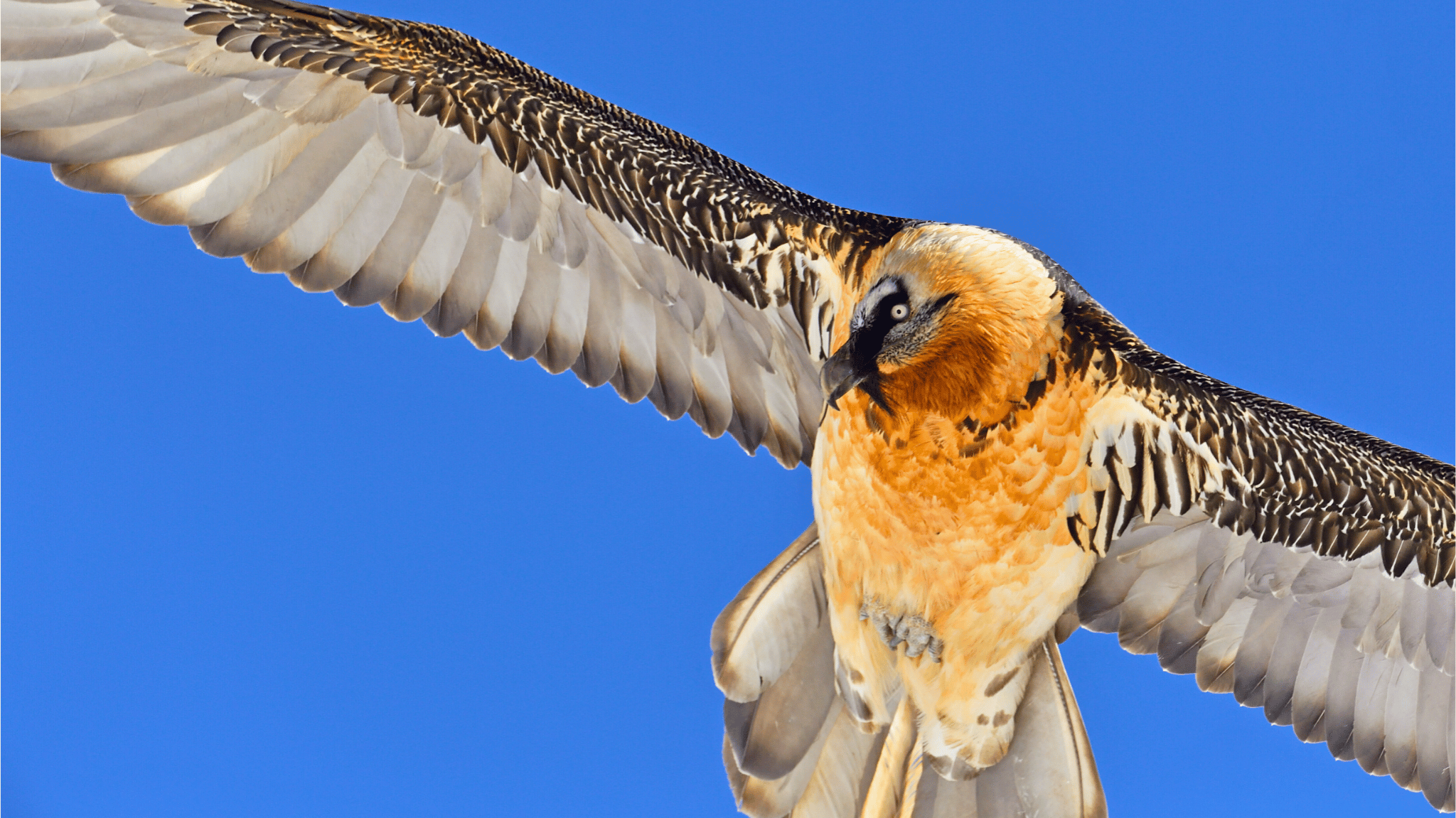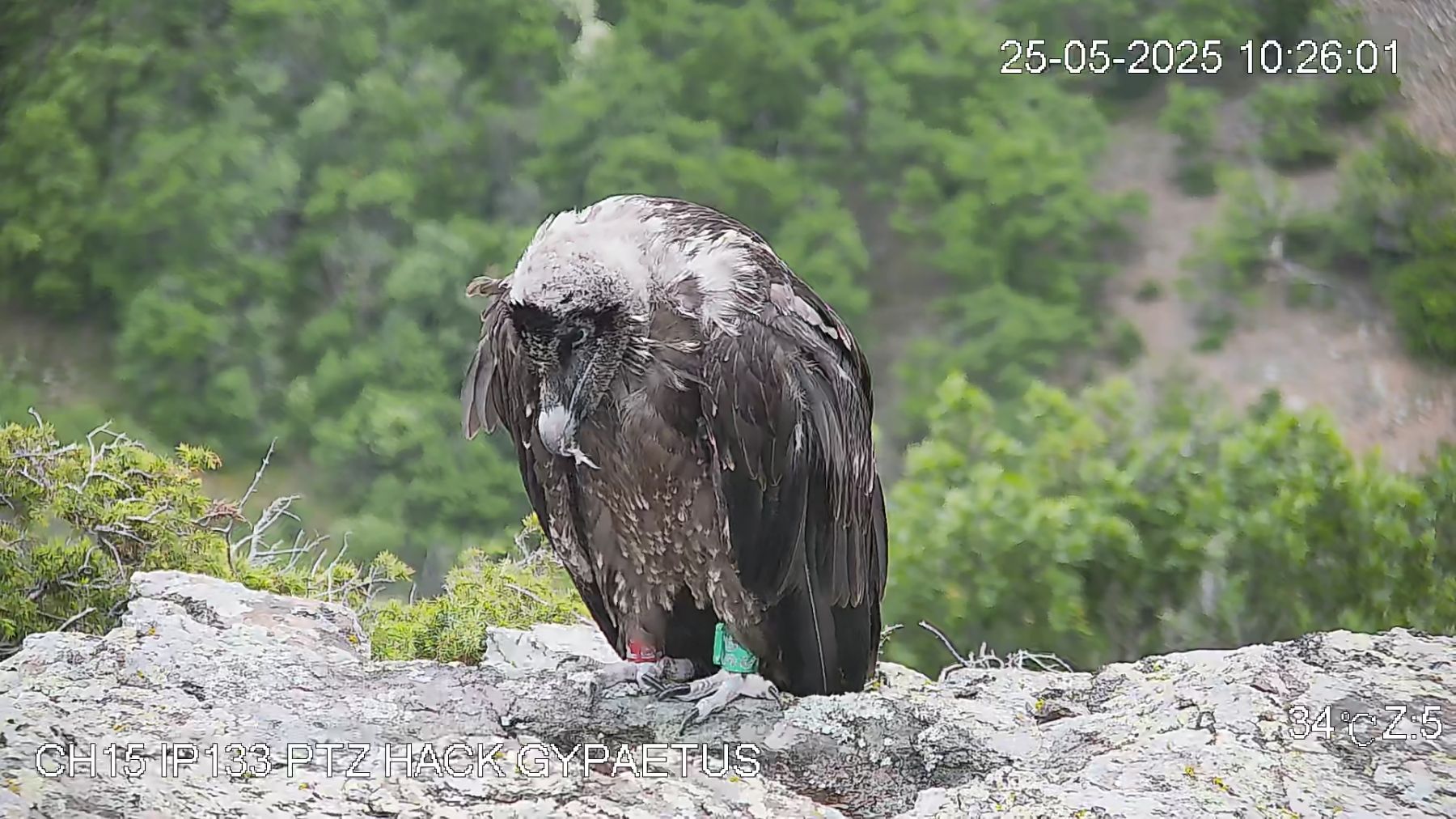
The LIFE GYPCONNECT project aims to reintroduce a population of Bearded Vultures into the Massif Central mountain range and the French pre-Alps to connect the reintroduced population in the Alps with the population in the Pyrenees.
In 2019, the project released nine birds into the release areas, including Pamela and Carmen in Drôme. Since its start, the conservation project released a total of 27 birds!
Reintroducing Bearded Vulture populations
The Bearded Vultures are bred in captivity within the VCF’s Bearded Vulture Captive Breeding Network (EEP) and every year several birds are released in the wild to different regions including the LIFE GypConnect project area.
The project releases the birds using the hacking method, which is more or less the “natural” way of fledging. When Bearded Vultures are released into the hacking area, they do not know yet how to fly. They are monitored and fed without human interaction until they are ready to spread their wings and take their first flight. 2019 was the best release season to date, and the project released an additional two Bearded Vultures.
Unplanned releases of Bearded Vultures
As coordinators of the captive breeding network of zoos, specialised breeding centres and private collections, we manage the captive birds closely to ensure optimum breeding results. Over a couple of years, there has been a bias towards females among the birds we look after, which we hoped would be resolved this year with a record number of 30 chicks surviving. However, when the sex determination results came back, the four birds reserved for the breeding network were female, so had to be released into the wild. Two were destined for Andalucia region of Spain, and we decided to release two as part of the LIFE GypConnect project in France.
Carmen and Pamela
The two female birds were given the names Carmen and Pamela. Carmen was born on 21 February at Ostrava Zoo in the Czech Republic while Pamela was born on 25 February at the Green Balkans Wildlife Rehabilitation and Recovery Centre in Bulgaria. Pamela began her journey from Bulgaria to France a few days ahead of her release into the wild.
the hope of a recolonisation of the Baronnies by the vulture.
Releasing Carmen and Pamela into the wild

The extra release of the two female Bearded Vultures for the LIFE GYPCONNECT project took place on Saturday 25 May 2019 at the Parc Naturel Régional des Baronnies Provençales, and even though there was no formal presentation, the event attracted a small crowd to wish the birds well.
After the presentation, the two birds were transported to the release site where they were monitored and fed, without any human contact, until they fledged and took their first flights into freedom.
Terre Sauvage dedicated a feature about the project and the release of these two birds. You can download it below.
Download the GypConnect feature at Terre Sauvage
Terre Sauvage GypConnect.pdf
Adobe Acrobat Document 1.7 MB
LIFE GypConnect

Led by the League pour la Protection des Oiseaux (LPO), the LIFE GYPCONNECT project aims to establish a breeding population of Bearded Vultures in the Massif Central and Department of the Drôme. Releasing captive-bred Bearded Vultures into the wild at sites such as the Parc Naturel Régional des Grands Causses, Parc Naturel Régional des Baronnies Provençales and Parc Naturel Régional du Vercors will create a core population that will connect the two populations of the species in the Alps and Pyrenees. To facilitate movements between the new population and the Alpine and Pyrenean populations the LIFE GYPCONNECT team is creating a network of supplementary feeding stations, and tackling threats such as poisoning, and collision and electrocution with the electricity infrastructure.








